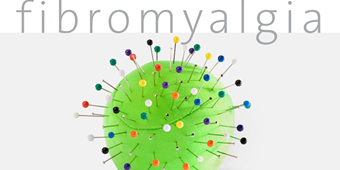Breast Biopsies Informative Tool In Fighting Breast Cancer
Answer a few questions and we'll provide you with a list of primary care providers that best fit your needs.
Early detection is one of the best defenses we have against breast cancer.
Breast biopsies can be an important part of early detection. Mammograms can find concerning areas of breast tissue that need a closer look, and that’s what breast biopsies are for.
During a biopsy, your health care provider will remove cells from the area of concern so they can be examined in a lab to see if they’re cancerous.
There are two types of biopsies, both of which use a needle inserted into your breast to remove a targeted sample of tissue, says Michelle DeGroat, MD, a surgeon with Gem City Surgeons.
The first type uses an ultrasound machine to visualize and guide the needle where it needs to go. The second type is a stereotactic biopsy, which uses X-rays and a mammography machine to guide the needle.
Ultrasound-guided biopsies are usually used when a mass has been found. Stereotactic biopsies are usually done after micro-calcifications are seen during a mammogram.
“A biopsy is ordered with any new changes that are detected in the breasts, whether it’s a lump or an abnormal mammogram,” Dr. DeGroat says. “We are really paying attention to anything that changes. We perform biopsies if we see something that is different from year to year or distorted on a mammogram, if there’s a mass, or if there are abnormal calcifications that may be new based on prior mammograms.”
Biopsy Discomfort, Results
A biopsy can be uncomfortable, but overall doesn’t cause too much pain.
“We strive to make the experience as comfortable as possible, first by numbing the location of the needle entry site, and then by numbing the general area where the sample is being taken,” Dr. DeGroat says. “There may be some initial discomfort, but the patient shouldn’t have any pain during the procedure itself.”
It’s also important to remember that needing a biopsy doesn’t necessarily mean you have cancer. When you’re told you need a biopsy, it can cause anxiety and stress, so typically health care providers try not to request them unless they are necessary, she says.
The time to receive biopsy results can vary for each person, but it usually takes 48 to 72 hours.
About one in eight women in the U.S. develops invasive breast cancer in their lifetimes, according to the American Cancer Society. Breast cancer is the second leading cause of cancer death among American women today.
Breast biopsies are a critical tool to help health care providers and patients have accurate, timely information not only to diagnose, but also to treat and overcome the disease. Breast biopsies continue to play an important role in positive patient outcomes.
To learn more about breast biopsy, talk to your doctor or health care provider or search for a provider.
Answer a few questions and we'll provide you with a list of primary care providers that best fit your needs.
Source: Michelle DeGroat, MD; Gem City Surgeons; American Cancer Society; Breast Biopsy, Healthline, 12/19/2018; Mammogram, Healthline, 12/19/2018; Breast Cancer, Healthwise, 12/19/2018





